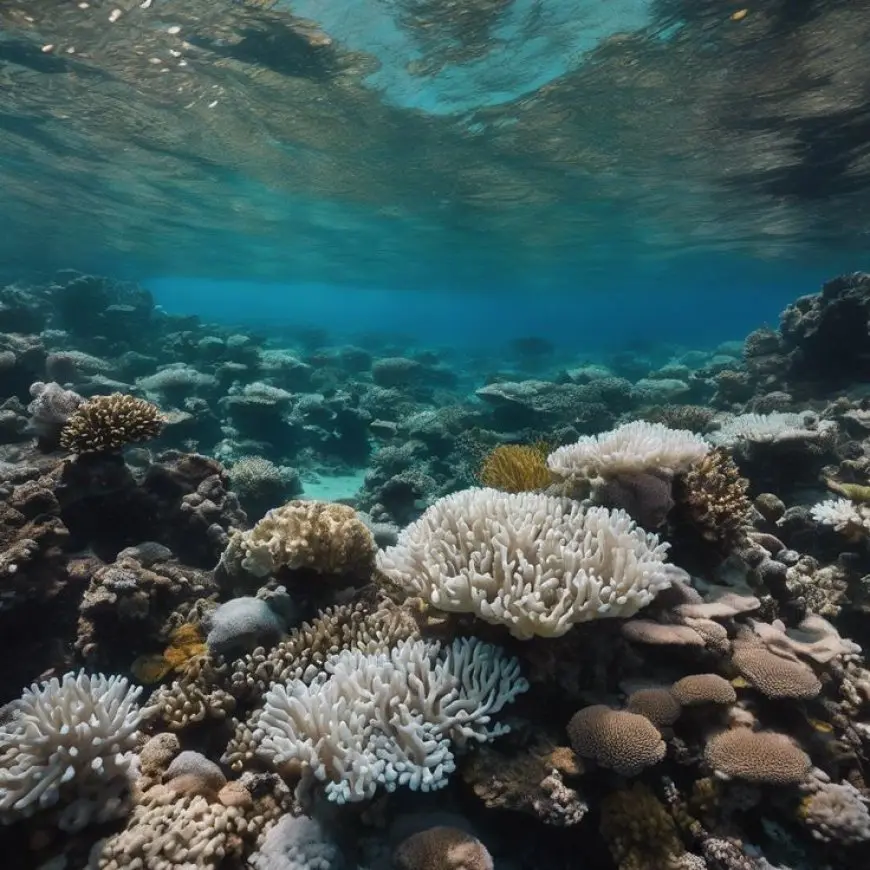How Climate Change Affects Coral Reefs
How Climate Change Affects Coral Reefs

Coral reefs, often referred to as the "rainforests of the sea," are vital ecosystems that support a diverse range of marine life. These beautiful and complex structures, formed by the accumulation of calcium carbonate from coral polyps, provide shelter, food, and breeding grounds for thousands of species. However, coral reefs are facing severe threats due to the ongoing effects of climate change. Rising ocean temperatures, ocean acidification, and other environmental changes are disrupting these delicate ecosystems, with consequences that affect both marine biodiversity and coastal communities.
Rising Ocean Temperatures
One of the most significant impacts of climate change on coral reefs is the rise in ocean temperatures. Corals are highly sensitive to temperature changes, and even small increases in water temperature can lead to coral bleaching. Coral bleaching occurs when corals expel the symbiotic algae, called zooxanthellae, that live within their tissues. These algae provide corals with the energy they need to grow and thrive through photosynthesis. When corals expel the algae due to stress, the corals lose their color and become more vulnerable to disease and mortality.
If water temperatures remain high for extended periods, coral reefs may not be able to recover from bleaching events. Repeated bleaching, combined with other stress factors, can lead to widespread coral death, leaving behind lifeless, white skeletons. The loss of coral cover drastically impacts the entire ecosystem, as coral reefs are home to a diverse array of species, many of which depend on the structure and health of the reefs for survival.
Ocean Acidification
Another significant consequence of climate change is ocean acidification. As the atmosphere accumulates more carbon dioxide (CO2) from human activities, a large portion of this CO2 is absorbed by the ocean. When CO2 dissolves in seawater, it forms carbonic acid, which lowers the pH of the ocean. This process, known as ocean acidification, makes it more difficult for corals and other marine organisms to build and maintain their calcium carbonate skeletons.
Calcium carbonate is essential for corals to form their hard skeletons, and the increasing acidity of the ocean reduces the availability of the minerals corals need to grow. Over time, this makes it harder for corals to build and maintain their structures, weakening the reefs and reducing their resilience to other environmental stresses. Ocean acidification also affects other marine life, such as shellfish, which rely on calcium carbonate for their shells, further disrupting the marine food chain.
Storms and Coastal Erosion
Climate change is also contributing to the intensification of storms and extreme weather events. More powerful tropical storms and hurricanes, fueled by warmer ocean temperatures, can cause significant physical damage to coral reefs. These storms can break apart coral colonies, uproot marine plants, and increase the sediment load in the water, smothering corals and reducing the amount of sunlight that reaches them.
The rise in sea levels, caused by melting polar ice caps and glaciers, also exacerbates the problem. As sea levels rise, coastal areas become more vulnerable to flooding, and the increased wave action can accelerate coral reef erosion. Coral reefs, which act as natural barriers against coastal erosion, are now less effective in protecting shorelines from the impacts of rising sea levels and stronger storms.
Loss of Biodiversity
The effects of climate change on coral reefs are not limited to the corals themselves. As reefs degrade, the species that depend on them for shelter, food, and breeding grounds are also at risk. Coral reefs support about a quarter of all marine species, including fish, mollusks, sea turtles, and marine mammals. When coral reefs are damaged or destroyed, the entire food web is disrupted, leading to declines in fish populations, loss of biodiversity, and the collapse of local fisheries that many coastal communities rely on for sustenance and income.
Additionally, the loss of coral reefs has socioeconomic consequences. Coral reefs support the livelihoods of millions of people around the world through fishing, tourism, and coastal protection. As reefs degrade, communities that depend on these ecosystems face economic hardships. In some regions, coral reefs attract tourists, and diving and snorkeling tours generate significant revenue. The decline of these ecosystems can reduce tourism income and lead to the loss of jobs for people who rely on the health of the reefs.
What Can Be Done?
While the challenges posed by climate change are immense, there are steps that can be taken to help protect coral reefs and increase their resilience. Reducing global carbon emissions is crucial in mitigating the impacts of climate change on coral reefs. Limiting the warming of the oceans and reducing CO2 emissions will help slow coral bleaching events and reduce ocean acidification.
In addition to global efforts to combat climate change, local conservation measures can also help protect coral reefs. Marine protected areas (MPAs), where human activities are restricted, can provide a safe environment for corals to recover and thrive. Sustainable fishing practices, reduction of pollution, and the restoration of damaged coral reefs through coral gardening and transplantation programs can also support the resilience of coral ecosystems.
Coral reefs are among the most biologically rich ecosystems on Earth, but they are increasingly threatened by climate change. Rising ocean temperatures, ocean acidification, and the intensification of storms are putting coral reefs at risk, with devastating consequences for marine biodiversity and coastal communities. However, through global action to reduce carbon emissions and local conservation efforts, there is hope that coral reefs can be protected and preserved for future generations.







